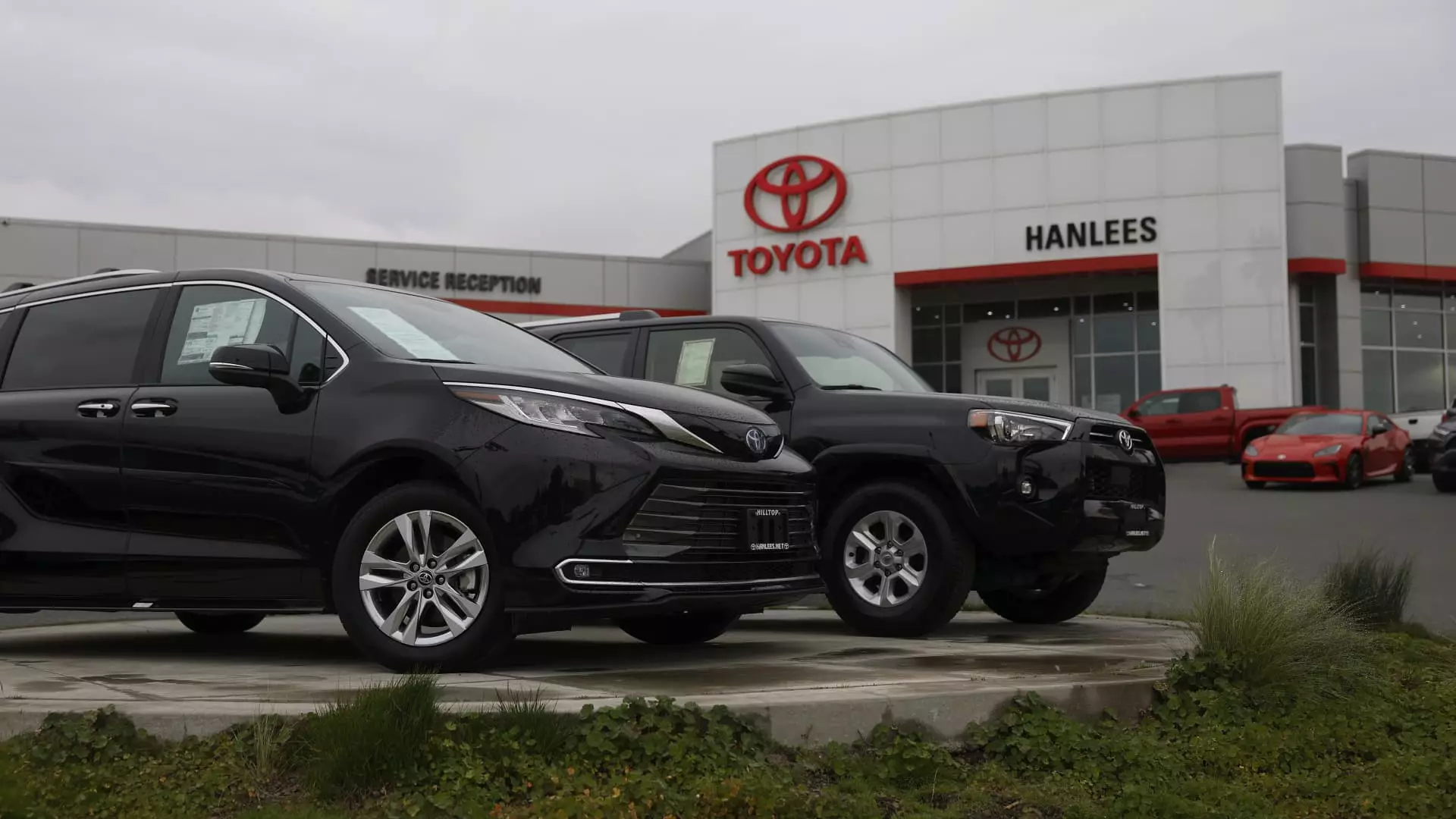The recent imposition of a staggering 25% tariff on auto imports not made in the United States has thrown Asian automakers into turmoil. President Donald Trump’s decisive action reflects a reckless approach to international trade that only serves to cripple the very industries designed to bolster economic growth. In an era where globalization is a lifeline for business, these tariffs paint a grim picture of isolationism razing productive partnerships and collaborative growth in favor of hollow nationalist rhetoric. The sense of impending doom reverberates among car manufacturers, particularly those hailing from Asia, and the negative ripple effect might not just linger but potentially devastate the industry as a whole.
The knee-jerk reaction in the stock market following the announcement further epitomizes the fear that grips automakers. Brands like Toyota and Nissan experienced unprecedented drops—9.4% and 9.3%, respectively—while South Korea’s Hyundai seized the ignominious crown with an 11.2% plunge. Such staggering declines echo a reality that these companies are not merely toys to be played with by policymakers; rather, they are critical players in a much larger economic conversation. If policy decisions can lead to such abrupt devaluations, one must question the wisdom behind these tariffs.
The Inextricable Link Between Strategy and Market Forces
Asian automakers are not anonymous entities; they are global giants whose revenue streams are intricately linked to the U.S. market. According to data from S&P Global Mobility, the U.S. remains an irreplaceable cornerstone for these companies, with Toyota leading with nearly two million vehicles sold. This is where the economic ramifications of the tariffs veer from mere existential concerns toward potential catastrophe. The financial distress will likely force manufacturers to either absorb costs or transmit them to consumers, thus raising car prices dramatically. The long-standing shift of auto production toward more affordable bases in Asia calls into question the simplistic notion that such duties can be easily offset through local production increases.
It’s crucial to scrutinize the implications of these tariffs through a lens that balances economic realism against political posturing. Analysts like Vivek Vaidya from Frost & Sullivan articulate a daunting scenario where giants like Toyota may not be able to recover from the onslaught of tariffs. The suggestion that automakers can swiftly shift production is misleading. Transitioning manufacturing is a lengthy, costly, and potentially disruptive endeavor that cannot simply be conjured overnight. The looming deadline for tariff implementation leaves little room for strategic pivoting, adding an acute sense of urgency to an already precarious situation.
The Irony of Rising Costs
One cannot overlook the irony that while the drive for tariffs is ostensibly designed to protect American jobs, it puts them in jeopardy instead. As manufacturers are compelled to increase vehicle prices or streamline operations to accommodate this new tax, the resultant shockwaves could dampen consumer spending, directly impacting the very workforce President Trump professes to support. The decision paints an absurd picture of protectionism—that in safeguarding certain jobs, entire markets could find themselves unraveling.
In a complex environment where brands are losing ground, it’s worth noting those who may momentarily evade the fallout. Japanese automaker Suzuki, notably absent from the U.S. market, has managed to campaign through this turmoil with minimal disruption to its operations. Its stock performance, displaying year-to-date gains, starkly contrasts the dismal trends seen by competitors. This conundrum calls into question the future viability of those manufacturers heavily reliant on the U.S. market and showcases the multifaceted nature of the automotive industry—an ecosystem threatened by shortsighted fiscal policies.
Lessons on Global Trade Dynamics
What these tariffs ultimately represent is not just a domestic battle but a clarion call for a reevaluation of global trade strategies. When politicians fail to recognize the complexities in the interconnectedness of the global supply chain, they risk inflicting self-sabotage. The current administration must realize that protectionist policies not only have unintended consequences but also highlight the fragility of our economic landscape.
To navigate future challenges, a more nuanced approach to trade policy that fosters cooperation instead of conflict will be essential. It is crucial for policymakers to engage with industry leaders and create frameworks that support equitable growth for all. Beyond mere slogans, the necessity for sound economic strategy grounded in an understanding of global interdependence has never been clearer. It’s high time for a wake-up call regarding the repercussions of reckless decisions that threaten to unravel the intricate tapestry that is the global automotive industry.

